Well Stated: David Oyelowo
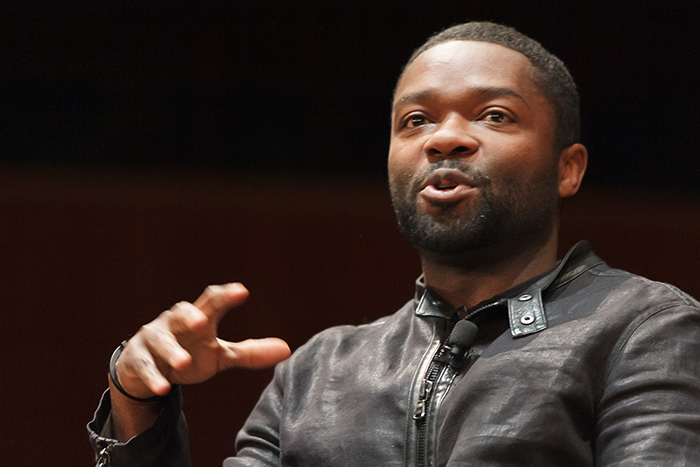
Photo by Carl Socolow '77.
Memorable quotes by David Oyelowo
by MaryAlice Bitts-Jackson
During his March 6 visit to campus, actor/director/producer David Oyelowo delivered advice to students in acting and directing classes, spoke with student groups about his experiences as an immigrant and delivered the 2017 Poitras-Gleim Lecture. Below are some of the most memorable quotes from the address, which touched on issues of diversity in Hollywood, the challenges of parenting mindfully in a digital age, his mission as an actor of color in and his life as a new American citizen during the Trump presidency.
On moving from England to Nigeria at age 6
"Something extraordinary happens when you are the majority, when you are the norm. Suddenly, I was living in a society where every opportunity was mine for the taking. It eroded a minority mentality … a lot of the success I’ve been blessed with, I attribute to the fact that I don’t wake up every day, feeling like I’m about to go into a challenging day."
On change-making movies and TV
"Movies and television are two of the most influential mediums in the world. I’ve been in villages where there is barely any electricity or running water, but you’ll see 20 kids gathered around a TV watching a random American TV show."
On the Trump Presidency
"Of the top 15 posts in his cabinet, 13 are white and male. There are only two women, two people of color. That is making a statement to every woman, to every person of color and to every white man, as to what this country values."
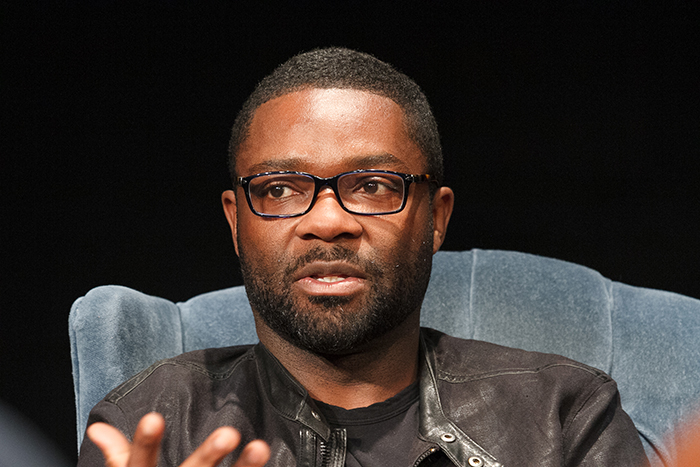
Photo by Carl Socolow '77.
On prejudice
"Prejudice is rooted in fear of what you don’t know. The minute you start to know more about someone who doesn’t look like you—the minute you start to understand your own history and someone else’s history, and how it intersects with your history—that’s when we start getting closer."
On America and Christian values
"I think America cannot truly be its best self until there are some apologies made [to Native Americans and African Americans]. I’m a Christian, and I know the power of repentance and what that brings by way of blessing, grace, favor."
On parenting
"The media, unfortunately, is parenting our children. Social media, unfortunately, is parenting our children."
"I had a conversation with my boys during the campaign [when it was reported that] Donald Trump said reprehensible things about women, and when he became president, when [it appeared that] that bad behavior had been rewarded, I had to have another conversation with my kids … I said, ‘Not in our house. Not on my watch.’ "
"Because of how women are represented on film, advertising, on TV, it makes it almost impossible to bring your kids up to respect women for who they are, as opposed to what they look like. … One of the challenges facing our society is that if you are going to get a man to respect a woman enough to see beyond the physical attributes, in order that he will want to be with her in a way that is meaningful and long-lasting, that starts with the images we put in front of that child from the ages of 1, 2, 3, 4, 5."
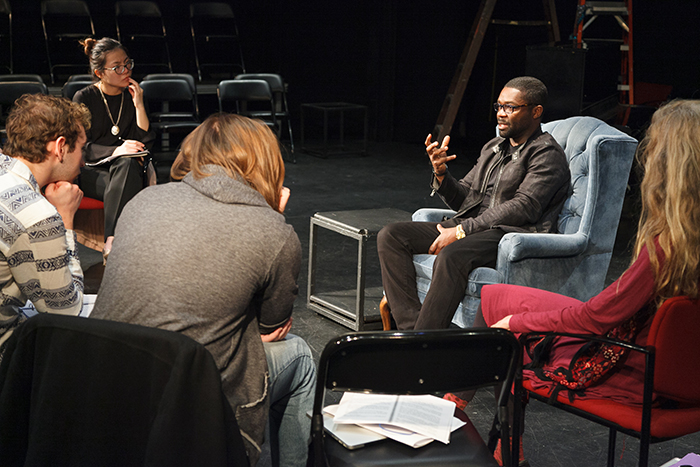
Photo by Carl Socolow '77.
On women in Hollywood
"Last year, of the 250 top-grossing movies in Hollywood, only seven percent were directed by women. That is an agenda, conscious or subconscious."
On casting and race
"When I was coming up, roles for young black actors were written from an outsider perspective. I’d read the white characters and say, ‘That’s me; that’s reflective of my life.’ That’s a powerful thing to realize. … I had to very consciously pursue roles written for white actors, if I wanted to play a complex, dimensional character."
"If you get roles for people of color that are not representative of real life, you are robbing society in general of a knowledge of how intersected it is. Hollywood, in my opinion, has the responsibility to change, so we can have a more complex view of who we actually are."
"We haven’t had enough representation of people of color in media. … It’s a lack of balance. We’re a malnourished society, in that way."
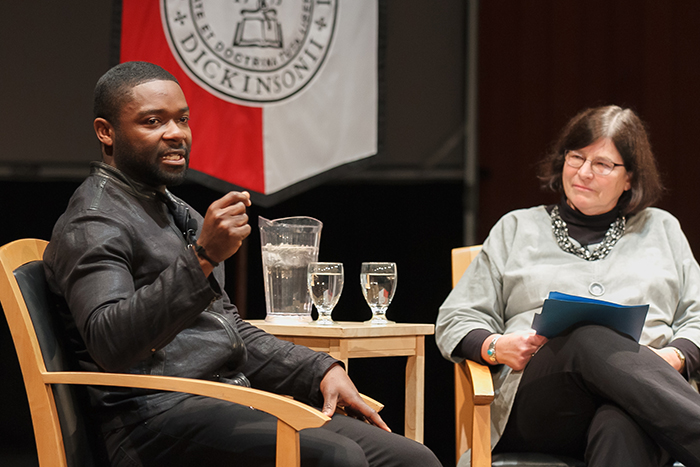
David Oyelowo and Susan Rose, Charles A. Dana Professor of Sociology and director of the Community Studies Center. Photo by Carl Socolow '77.
On bias in production
"In this country, you have white guilt and black pain, so when you are trying to make films [about Africans or African Americans], the studios will say that white people won’t want to see it and black people have seen enough of it. You have to prove the value of it. … It’s not that the audience isn’t ready; it’s that the gatekeepers believe the audience isn’t ready."
"Every time you watch a Hollywood film, you see the bias of the people making the movies. We all project our bias on the work we do. At the end of the day, I’m convinced we go to the movies to see ourselves."
On acting
"What I try to do with every film I do is to present a different context of what it is to be a black man on planet Earth. That’s my job."
"It’s a very competitive industry, in which only brave and strong survive. The people who stay at it, they feel they must do it, and nothing else."
"There’s no science to being someone whose job it is to advocate what it is to be a human being. As actors, we’re all on a quest for truth."
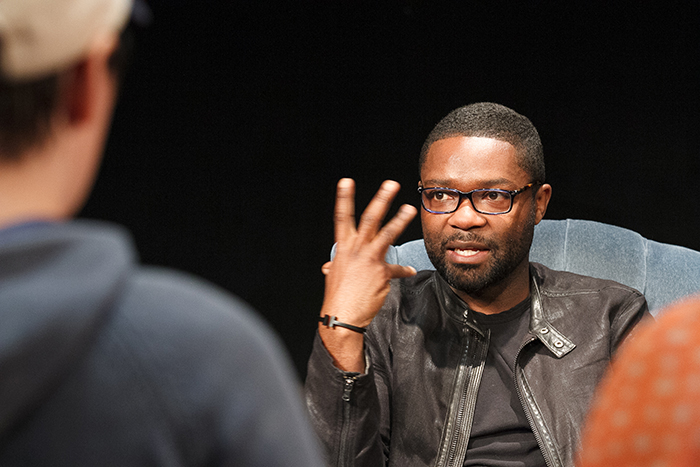
David Oyelowo speaks with theatre students. Photo by Carl Socolow '77.
On excellence
"The best weapon against prejudice is excellence. If you go in with a spirit of excellence and without a minority mentality, before you know it, even people who resist you will have to accept, as truth, who you are."
On portraying Dr. Martin Luther King Jr.
The burden of what it must’ve been to be him—I felt I had a glimpse of it, and it was almost unbearable. He was ravaged by the sense of responsibility he felt—every death, every injury, he felt was his fault. The levels of sacrifice he engaged in were extraordinary.
On immigration
"We are all from somewhere else. That has been why this country is the greatest nation in the world. … Because it is built on values that are really commendable."
"Donald Trump is the child of immigrants. This country is built on immigrants … This country is owned legitimately by millions of people who are not white and male."
On creating a better world
"I didn’t go into acting to break down prejudice or champion women directors. But as I have gone through my career, I came to realize that these byproducts are important to me. I realized that I could do what I love and also help start conversations, help create a better world for my children."
"Whether you’re involved in the arts or media or not, the contribution that you will make to this country is absolutely invaluable. But it will only have far-reaching effect if you are intentional about how you want to affect the world in terms of prejudice. Unless you are intentional about the world you want to see, it simply will not change."
Learn more
Published March 7, 2017